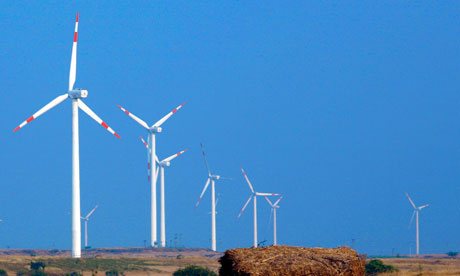
The title of this week's poem, "Autobiography Without Pronouns," from Kink and Particle by Tiffany Atkinson, declares a paradox: personal revelation (autobiography) and impersonality (no identifying pronouns). Poets, of course, sometimes look for a way of encoding private experience, but it would be complacent to assume that's the aim here. The challenge the writer sets herself is primarily a linguistic one, and she accomplishes it with no sacrifice of specific detail or personal voice.
Although relatively short at 20 lines, the poem seems full of space, light and movement. The absence of an "I" and other pronominal clutter certainly liberates the "eye" of writer and reader. Present participles enhance the poem's momentum, the syntax is loosened, and the reader shares the speaker's experience of watching, though car-windows, a flow of moving images.
This cinematic device is underlined by the "Super-8" simile in lines six to eight and later references to slo-mo and panning. The hand-held camera and 8mm film contrast with the advanced technology of the wind farm, but both might evoke parallels with the mind's memory-storing processes. Perhaps, additionally, the film-making is an activity framed in other parts of the poem (the tricycling child, for instance, could be on film). The immediate observation seems to enfold snippets of an older story, and the homecoming implied by "driving back" and "breaking home for twilight" may involve remembering other meanings of "home".
The windmills are clearly moving fast. Both the sweep of their tempo and the environmental friendliness of their technology are evoked by the colours and preposition of "white-through-blue". At the same time, they're linked to traditional agriculture by the notion of "reaping". A more familiar metaphor, the sky as a china bowl, is wittily filtered through the allusions, "priceless", "hairline crack". Another quietly-plotted surprise is the word "hiss" as a description of the noise the sea makes. Are ominous associations conjured by a sound connected with home movies? Despite the "Feathers by/ the roadside" confirming death or injury, the poem maintains its light-hearted, open-road, into-the-west sort of mood.
More omens appear in the encounter with the traveller selling quartz hearts, an incident relayed with a nicely-underlined zeugma when s/he "prophecies a wild affair/ and light rain, though in no particular/ order". We assume the car has stopped and the speaker has alighted, but the event could, of course, belong to more distant memory. It's an easy shift from the landscape's "slipstream" to these closer, more random-seeming character-shots.
The appearance of the small girl on a scarlet tricycle is all magical surprise. "Rounding the corner," she shrinks the linear stretch of landscape to town-sized dimensions. The observation that she "has just created pigeons" is her own excited point-of-view, perhaps. And now the narrative becomes simultaneously explicit and mysterious. "Mother" and "Ricardo", are not visibly connected to the speaker, but intimacy is implied. The shift to the past tense gives their finished lives a reality; in fact, they seem to supply a sombre biographical core to the poem. These lines enhance our sense of watching a film, a foreign film, decades-old, with a terse voiceover, and images – colourless, grainy, haunting – which seem freighted with back-story. The three characters may form a family triad (child, mother, the unfortunate Ricardo) but it's up to the reader. The absence of pronouns has freed the poem for this kind of bold stroke.
The narrative has always been tight and pacy, and now it consciously accelerates with that almost-monosyllabic camera-direction: "pan through/ sky to sea to road to quartz to pigeons." These different objects seem to meld in tones of blue and grey, and degrees of iridescence, relieving the imagined ugliness of Ricardo's death. The hooting train and the "all change" ("all" being a pronoun without an autobiography) underline a denouement harsher than expected, though in accord with the poem's overall sense of openness to what happens. "And love insists, like gravity" seems to confirm that the poem's journey was not to safety, but to a further emotional centre, a home-in-the-making. As movement ceases, the perfectly-judged intransitive use of "insists" somehow knits every earlier experience and future possibility together.
Atkinson has followed up her debut collection, Kink and Particle, with a lively re-working and re-gendering of the Latin poet, Catullus, Catulla et al, published by Bloodaxe last year. A new collection, So Many Moving Parts, is forthcoming.
Autobiography Without Pronouns
Driving back in the slipstream
of the windfarm, each arc of white-
through-blue reaping ohms from clean
air. The sky would be priceless but
for a hairline crack on its far curve:
everything in slow-mo, the sea
for miles on the passenger side
like the hiss of Super-8. Feathers by
the roadside. Breaking home for twilight
where the traveller selling quartz hearts
on the seafront prophesies a wild affair
and light rain, though in no particular
order. The small girl rounding the corner
on a scarlet tricycle has just created
pigeons; an astonishment of beat and wing.
Mother's death was nothing unexpected
but Ricardo's came brutally. Pan through
sky to sea to road to quartz to pigeons
as the last train westward claxons in. All
change. And love insists, like gravity.

